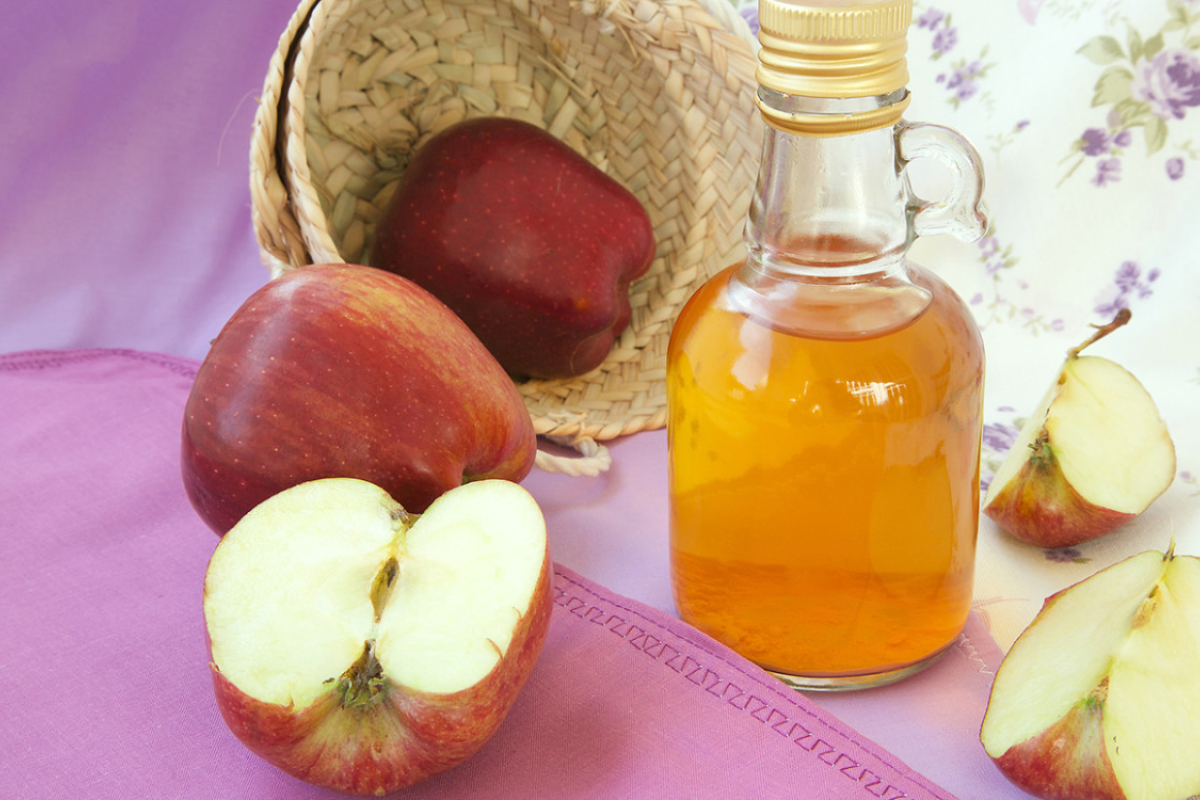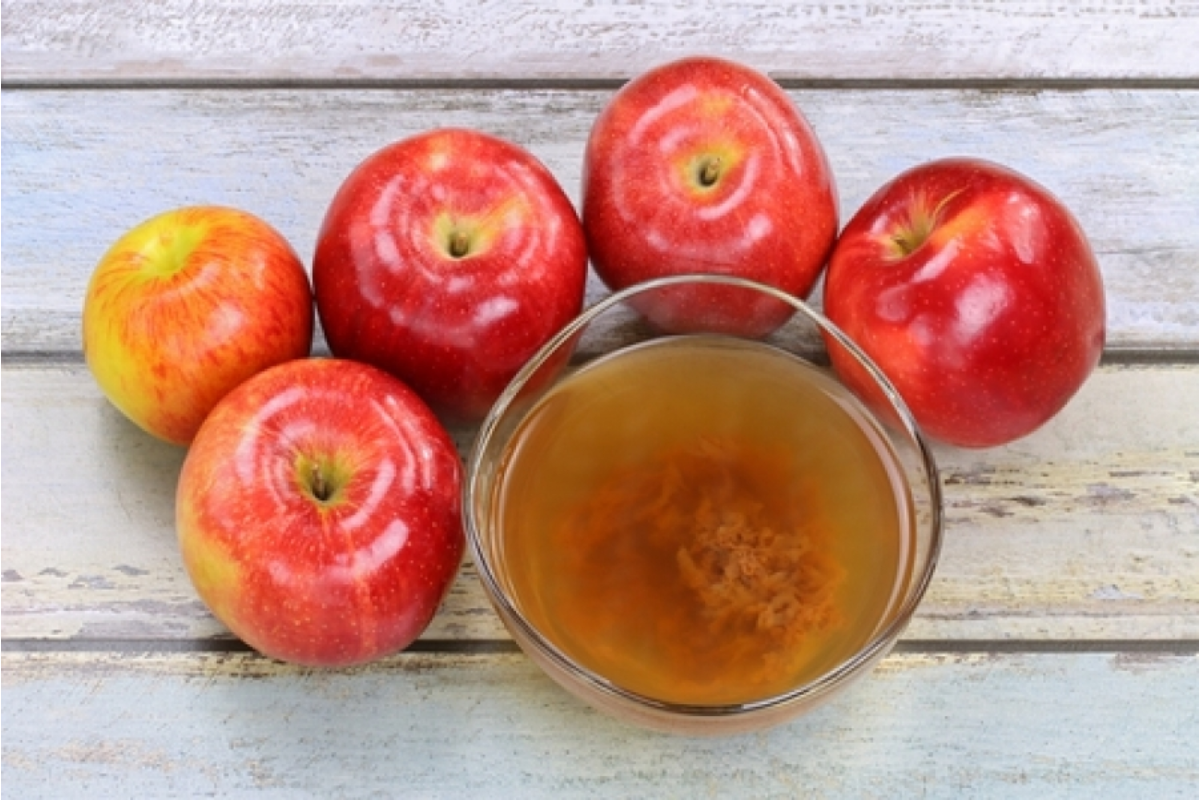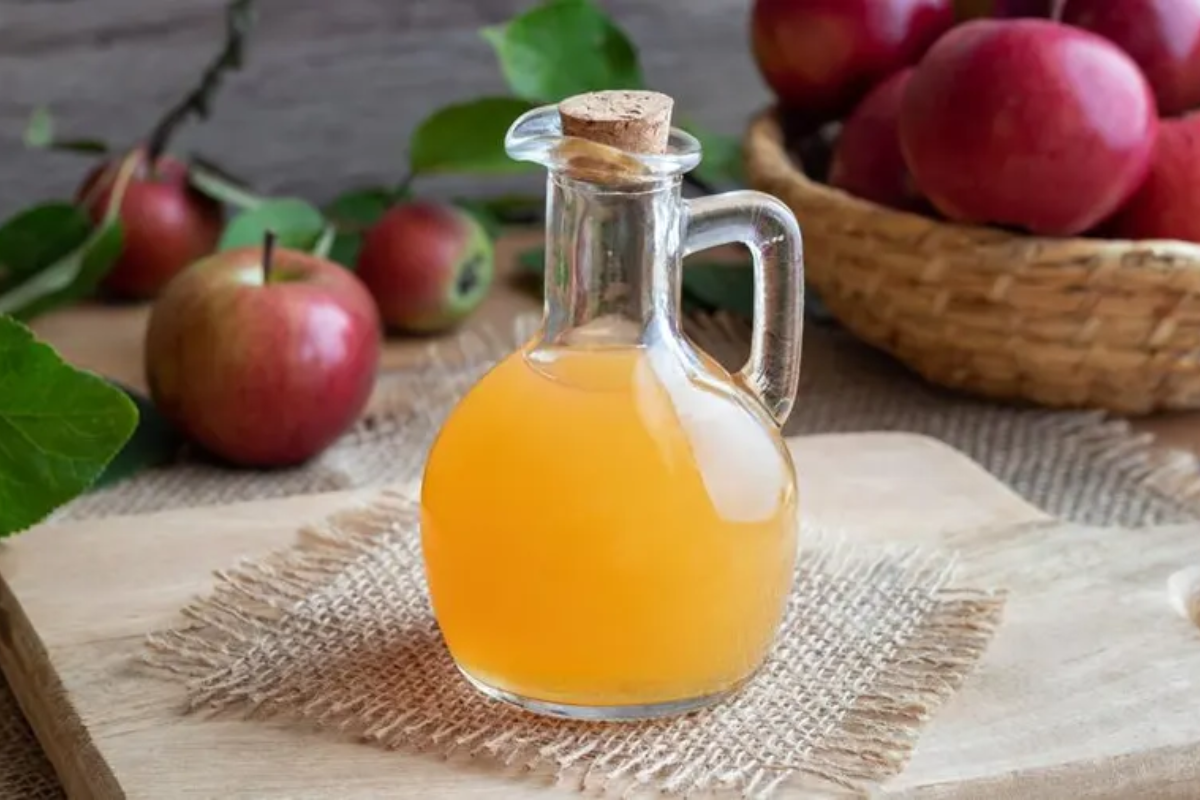Welcome to Toronto’s December 2024 Winter Fest, a season of joy, festivities, and warmth in the heart of Canada. As the city shimmers with holiday lights and a delightful chill fills the air, there’s something else in the spotlight this winter season – Bragg’s Vinegar and its potential role in weight loss. In this article, we will embark on a journey to explore the question that’s been on the minds of many: “How Much Bragg’s Vinegar for Weight Loss?” Let’s unravel the secrets behind this renowned health product and discover how it can be a valuable asset in your weight loss journey during this festive season.
how much braggs vinegar for weight loss
Bragg’s Vinegar and Weight Loss
When it comes to natural health products, Bragg’s Vinegar has earned its place as a trusted household name. For decades, it has been celebrated not only for its tangy flavor but also for its potential health benefits. In the realm of weight loss, Bragg’s Vinegar has emerged as a popular choice, often recommended by health enthusiasts and nutrition experts.
What is Bragg’s Vinegar?
Bragg’s Vinegar, specifically referring to Bragg Organic Raw Apple Cider Vinegar, is a pure and unfiltered vinegar made from crushed apples. What sets it apart is its “with the mother” label, indicating the presence of beneficial enzymes, proteins, and friendly bacteria. This cloudy and unprocessed form of apple cider vinegar is believed to retain more of the apples’ nutritional goodness.
The Claimed Benefits for Weight Loss
The reputation of Bragg’s Vinegar as a potential aid in weight loss is largely attributed to its unique composition. Here are some of the claimed benefits:
- Appetite Suppression: One of the primary ways Bragg’s Vinegar is thought to contribute to weight loss is by helping control appetite. The acetic acid in vinegar is believed to increase feelings of fullness, reducing the urge to overeat.
- Balancing Blood Sugar: Some studies suggest that apple cider vinegar may help stabilize blood sugar levels, preventing spikes and crashes that can lead to cravings for sugary or high-calorie foods.
- Metabolism Boost: The acetic acid in Bragg’s Vinegar may play a role in boosting metabolism. A faster metabolism can aid in burning calories more efficiently.
- Reducing Fat Storage: There is some evidence to suggest that apple cider vinegar can influence the storage of fat in the body, potentially leading to reduced fat accumulation.
The Right Dosage Matters
While Bragg’s Vinegar has garnered attention for its potential weight loss benefits, it’s important to emphasize that the dosage matters significantly. Too much of anything can have adverse effects, and the same applies to vinegar.

how much braggs vinegar for weight loss
Factors Influencing Dosage
Determining the appropriate dosage of Bragg’s Vinegar for weight loss isn’t a one-size-fits-all equation. Several factors come into play, making it essential to tailor the dosage to individual needs and circumstances. As you embark on your journey to incorporate Bragg’s Vinegar into your weight loss regimen during Toronto’s Winter Fest, consider these influential factors:
1. Body Weight and Composition: Your weight plays a crucial role in determining the amount of Bragg’s Vinegar you should consume. Heavier individuals may require slightly more vinegar to experience the same effects as those with a lower body weight. However, it’s important not to overdo it, as excessive vinegar intake can lead to digestive discomfort.
2. Metabolism: Metabolism varies from person to person. If you have a faster metabolism, you may find that you need less Bragg’s Vinegar to achieve your weight loss goals. Conversely, those with slower metabolisms might benefit from a slightly higher dosage.
3. Health Conditions: Pre-existing health conditions should be taken into account when deciding on the appropriate dosage. If you have conditions like diabetes or gastrointestinal issues, it’s advisable to consult a healthcare professional before significantly increasing your vinegar intake.
4. Weight Loss Goals: The amount of Bragg’s Vinegar you consume can also depend on your weight loss objectives. Are you looking to shed a few pounds or embark on a more significant weight loss journey? Your goals can influence the dosage you choose.
5. Tolerance and Sensitivity: Some individuals may have a higher tolerance for vinegar’s taste and acidity, while others may be more sensitive. Your tolerance can determine how easily you can incorporate Bragg’s Vinegar into your daily routine.
6. Lifestyle and Diet: Your overall lifestyle and dietary choices can impact the effectiveness of Bragg’s Vinegar for weight loss. If you’re already following a balanced diet and exercising regularly, you may require a lower dosage compared to someone with less healthy habits.
7. Gradual Adjustment: Regardless of your unique factors, it’s advisable to start with a lower dosage and gradually increase it. This approach allows your body to adapt to the vinegar and minimizes the risk of any adverse effects.
8. Consistency: Consistency in consumption is key to reaping the potential benefits of Bragg’s Vinegar for weight loss. Ensure that you incorporate it into your daily routine, whether by mixing it with water, using it in salad dressings, or enjoying it in other culinary creations.
Scientific Studies and Dosage
To determine the appropriate dosage of Bragg’s Vinegar for weight loss, it’s crucial to consider scientific studies that have explored its effectiveness. While the research is ongoing, several studies have shed light on the relationship between Bragg’s Vinegar and weight management.
1. A Promising Study: In a 2018 study published in the “Journal of Functional Foods,” researchers found that acetic acid, a key component in Bragg’s Vinegar, could help reduce body weight and fat mass in obese individuals. The study indicated that acetic acid might act as an appetite suppressant and enhance feelings of fullness, leading to reduced calorie intake.
2. Dosage Mentioned in Studies: Although there isn’t a universally agreed-upon dosage for Bragg’s Vinegar in scientific literature, the studies often reference a range of dosages. These typically fall between one to two tablespoons (15-30 mL) per day. However, it’s important to note that these studies are often conducted over a short duration and may not account for long-term effects or individual variations.
3. Personalized Approach: The studies highlight the need for a personalized approach to Bragg’s Vinegar dosage. Factors such as body weight, metabolism, and health conditions should be taken into consideration when determining the right amount for your weight loss journey.
4. Gradual Adjustment: As with any dietary change, it’s wise to start with a lower dosage and gradually increase it over time. This approach allows your body to adapt and minimizes any potential digestive discomfort or side effects.
5. Consultation with Experts: Before significantly altering your diet or increasing your vinegar intake, consider consulting with a healthcare professional or a registered dietitian. They can provide personalized guidance based on your unique circumstances and health goals.
6. Monitoring Progress: While incorporating Bragg’s Vinegar into your weight loss regimen, it’s important to monitor your progress. Keep track of your weight, body composition, and how you feel overall. Adjust your dosage if necessary to align with your desired outcomes.

how much braggs vinegar for weight loss
Expert Advice from Canadian Nutritionists
When it comes to determining the right amount of Bragg’s Vinegar for weight loss, seeking guidance from Canadian nutritionists and healthcare professionals can be invaluable. These experts can provide personalized recommendations and insights into harnessing the potential of Bragg’s Vinegar for effective weight management during Toronto’s Winter Fest.
1. Individual Assessment: Canadian nutritionists emphasize the importance of an individualized approach. They consider various factors, including your current health status, weight loss goals, and dietary preferences. Your unique circumstances play a crucial role in determining the appropriate Bragg’s Vinegar dosage.
2. Start Gradually: Many Canadian nutritionists recommend starting with a smaller amount and gradually increasing it. This gradual approach allows your body to adapt to the vinegar intake, reducing the likelihood of digestive discomfort.
3. Balanced Diet: Nutritionists stress that while Bragg’s Vinegar may have its benefits, it should complement a balanced and diverse diet. Weight loss success is not solely dependent on one ingredient but rather on the overall quality of your dietary choices.
4. Consistency Matters: To experience the potential weight loss benefits of Bragg’s Vinegar, consistency is key. Incorporating it into your daily routine, whether through salad dressings, beverages, or other recipes, is a practice many nutritionists advocate.
5. Hydration and Dilution: Canadian nutritionists also emphasize the importance of diluting Bragg’s Vinegar in water or other liquids. This not only makes it easier to consume but also reduces the risk of potential side effects on the digestive system. Staying well-hydrated is equally important during your weight loss journey.
6. Monitoring Progress: Nutritionists recommend keeping a journal to monitor your progress. Record your weight, body measurements, and how you feel as you incorporate Bragg’s Vinegar into your routine. Regular assessments allow you to make informed adjustments if needed.
7. Consultation with a Professional: Before making significant changes to your diet or vinegar intake, consulting a registered dietitian or healthcare professional is strongly encouraged. They can provide tailored advice, address any concerns, and ensure your approach aligns with your health and wellness objectives.

how much braggs vinegar for weight loss
Toronto’s Winter Festival Delights
As December unfolds in Toronto, the city comes alive with the magic of winter festivities. The enchanting atmosphere during the Winter Festivals makes it an ideal time to explore the diverse culinary and cultural traditions. Amidst the festive ambiance, you’ll find ample opportunities to incorporate Bragg’s Vinegar into your meals while enjoying Toronto’s Winter Festival Delights.
1. Winter Wonderland: Toronto transforms into a winter wonderland during December, with snow-covered streets, glistening lights, and a sense of celebration in the air. The city’s iconic locations, like Nathan Phillips Square and The Distillery District, are adorned with holiday decorations that set the stage for an unforgettable experience.
2. Culinary Extravaganza: Toronto’s Winter Festivals boast a culinary extravaganza, offering a wide array of delightful dishes and seasonal treats. From hearty stews to artisanal pastries, the city’s food scene is at its peak during this time.
3. Hot Beverages: Warm beverages like mulled wine, hot chocolate, and spiced cider are staples of Toronto’s winter festivities. These cozy drinks provide the perfect backdrop for adding Bragg’s Vinegar discreetly, whether in mulled wine or hot apple cider, enhancing both flavor and potential health benefits.
4. Seasonal Ingredients: The festivals celebrate the season’s bounty, with vendors showcasing locally sourced ingredients. Fresh fruits and vegetables often make their way into dishes, creating opportunities to experiment with incorporating Bragg’s Vinegar into salads, dressings, and marinades.
5. Cultural Diversity: Toronto’s cultural diversity shines through during these festivals. You’ll find a fusion of flavors and cuisines, from international street food to traditional Canadian dishes. Bragg’s Vinegar can seamlessly blend into various culinary traditions, adding a unique twist to your meals.
6. Cooking Demonstrations: Many Winter Festivals feature cooking demonstrations by renowned chefs. These sessions can inspire creative ways to use Bragg’s Vinegar in your own kitchen, whether it’s drizzled over roasted vegetables or used in a zesty vinaigrette.
7. Bragg’s Vinegar in Holiday Recipes: Toronto’s Winter Festival Delights offer the perfect backdrop to explore new recipes with Bragg’s Vinegar. From apple cider vinegar glazes for roasted meats to refreshing salads with apple cider vinaigrette, there are numerous possibilities to enhance your holiday feasts.
Incorporating Bragg’s Vinegar into Winter Diet
While reveling in the festive delights of Toronto’s winter season, it’s easy to incorporate Bragg’s Vinegar into your diet to support your weight loss journey. Here are practical tips on how to seamlessly add this versatile vinegar to your winter meals:
1. Warm Apple Cider with a Twist: Elevate your hot apple cider by adding a teaspoon of Bragg’s Vinegar. It not only enhances the flavor but also offers potential weight management benefits. Just make sure to adjust the quantity according to your taste preferences.
2. Festive Salad Dressings: Salads don’t have to be bland, even in winter. Create zesty dressings with Bragg’s Vinegar, olive oil, honey, and Dijon mustard. Drizzle it over winter greens like kale or spinach for a refreshing side dish.
3. Roasted Vegetables: Winter is the season for hearty roasted vegetables. Before roasting, toss them with a mixture of Bragg’s Vinegar, olive oil, garlic, and your favorite herbs. The vinegar adds a delightful tanginess to the caramelized veggies.
4. Marinades for Meats: Experiment with Bragg’s Vinegar-based marinades for meats. Combine the vinegar with spices, herbs, and a touch of sweetness for a balanced and flavorful marinade that works well with chicken, turkey, or pork.
5. Pickling for Preservation: Make pickles using Bragg’s Vinegar. Pickled vegetables like cucumbers, carrots, or even red onions can be a crunchy and tangy addition to your holiday table.
6. Sauces and Gravies: Use Bragg’s Vinegar to add depth to your sauces and gravies. It pairs exceptionally well with traditional holiday roasts, giving them an extra layer of flavor.
7. Sparkling Beverages: Create your own sparkling beverages by mixing Bragg’s Vinegar with sparkling water and a touch of honey. It’s a refreshing and healthy alternative to sugary sodas.
8. Fruit Infusions: Infuse fresh fruits like apples, pears, or berries with Bragg’s Vinegar for a unique twist on fruit salads. The vinegar enhances the natural sweetness of the fruits.
9. Sip in Style: Enjoy a soothing nighttime drink by mixing warm water with a tablespoon of Bragg’s Vinegar and honey. It’s not only a comforting beverage but also a potential aid for weight management.
10. Experiment and Explore: Don’t be afraid to experiment and explore new recipes with Bragg’s Vinegar. Whether you’re trying a new dish or putting a spin on a classic, this vinegar can be a versatile addition to your winter diet.
Incorporating Bragg’s Vinegar into your winter meals can add flavor and potential health benefits to your diet. As you savor the festive dishes of Toronto’s winter festivals, consider these creative ways to make the most of this versatile ingredient.

how much braggs vinegar for weight loss
Success Stories and Testimonials
Toronto’s winter festival season provides a unique backdrop for individuals pursuing their weight loss goals with the help of Bragg’s Vinegar. These success stories and testimonials from real people shed light on the effectiveness and versatility of incorporating Bragg’s Vinegar into their winter diets.
Sarah’s Transformation
Sarah, a Toronto native, had struggled with her weight for years. When she decided to make a change, she turned to Bragg’s Vinegar as part of her weight loss journey. By adding a teaspoon of Bragg’s Vinegar to her morning warm water, she found that it helped her feel fuller and reduced her cravings throughout the day. Combined with a balanced diet and regular exercise, Sarah managed to shed 20 pounds in three months, just in time for the winter festivities.
Mark’s Flavorful Roasts
Mark, a culinary enthusiast from Ontario, discovered the magic of Bragg’s Vinegar while experimenting with holiday recipes. He used it to marinate his Thanksgiving turkey and Christmas ham. Not only did the vinegar infuse the meats with a delightful tanginess, but Mark also noticed that it aided in digestion, preventing the sluggish feeling often associated with heavy holiday meals. His guests were impressed, and his weight remained stable throughout the festive season.
Emily’s Sweet Tooth Solution
Emily, a dessert lover, was determined not to deprive herself of holiday treats during the winter festivities. Instead, she found a creative way to enjoy them guilt-free. Emily drizzled Bragg’s Vinegar-infused fruit salad over her favorite winter pies. The vinegar’s sweet and tart combination helped satisfy her sweet tooth, and she found herself indulging in smaller portions of desserts. Emily not only managed to maintain her weight but also enjoyed the holidays more than ever.
James’ Post-Holiday Detox
James, a fitness enthusiast, knew the importance of maintaining his weight during the holiday season. After indulging in festive feasts, he relied on Bragg’s Vinegar to kickstart his post-holiday detox. He created a detox drink with warm water, Bragg’s Vinegar, and a pinch of cayenne pepper. This concoction not only helped him cleanse his system but also gave his metabolism a boost. James felt rejuvenated and ready to continue his fitness routine even after the holiday celebrations.
Nina’s Salad Sensation
Nina, a health-conscious mom, incorporated Bragg’s Vinegar into her family’s holiday meals. She prepared a winter salad with Bragg’s Vinegar-infused dressing and served it alongside traditional holiday dishes. Her family loved the zesty flavor, and Nina was delighted to see her kids reaching for seconds of salad. The vinegar not only added a refreshing element to the meals but also encouraged her family to opt for healthier choices during the festive season.
These success stories and testimonials reflect the diverse ways in which Bragg’s Vinegar can support individuals in their weight management efforts during Toronto’s winter festivals. While results may vary, these real-life examples demonstrate that with creativity and determination, Bragg’s Vinegar can play a valuable role in maintaining a healthy lifestyle, even in the midst of holiday indulgence.
how much braggs vinegar for weight loss
As the winter festivities envelop Toronto in a cozy embrace, the question of “How Much Bragg’s Vinegar for Weight Loss?” takes center stage. Throughout this article, we’ve explored the incredible potential of Bragg’s Vinegar as a valuable ally in your winter weight management journey. Now, as we draw this discussion to a close, let’s recap the key insights and offer practical takeaways for a healthier and more enjoyable winter season.
The Power of Bragg’s Vinegar
Bragg’s Vinegar, renowned for its natural and healthful properties, has captured the attention of many seeking to maintain or lose weight during the winter festivities. It can be a versatile addition to your winter diet, bringing both flavor and potential health benefits to your meals.
The Importance of Dosage
Determining the right dosage of Bragg’s Vinegar for weight loss is a crucial consideration. While there’s no one-size-fits-all answer, factors such as your individual preferences, health conditions, and weight loss goals should guide your dosage decisions. Consultation with healthcare professionals and nutritionists can provide personalized recommendations.
Scientific Support and Expert Guidance
Scientific studies have explored the impact of Bragg’s Vinegar on weight loss, offering promising results. However, it’s essential to complement this evidence with expert advice from healthcare professionals and nutritionists who can provide context and personalized recommendations.
Incorporating Bragg’s Vinegar into Festive Meals
Discover creative ways to incorporate Bragg’s Vinegar into your winter diet. From marinades to dressings and detox drinks, Bragg’s Vinegar can add a unique flavor profile while potentially supporting your weight management efforts.
Real-Life Success Stories
The real-life success stories shared in this article demonstrate the versatility and effectiveness of Bragg’s Vinegar in aiding individuals on their weight loss journeys during Toronto’s winter festivities. Whether it’s reducing cravings, aiding digestion, or satisfying a sweet tooth, Bragg’s Vinegar offers various benefits.
In conclusion, while the winter season in Toronto is synonymous with joy and indulgence, it doesn’t have to be synonymous with weight gain. By making informed choices and incorporating Bragg’s Vinegar into your festive meals, you can strike a balance between savoring holiday flavors and supporting your weight management goals.
As you navigate the bustling winter festival season, remember that your journey to a healthier you is unique. Consult experts, stay motivated, and prioritize your well-being. With Bragg’s Vinegar as your ally, you can savor the delights of Toronto’s December 2024 Winter Fest while keeping your health and weight in check.
May your winter be filled with warmth, merriment, and the satisfaction of knowing that you’re making mindful choices for a healthier, happier you.
References and Further Reading
- Kondo T, Kishi M, Fushimi T, et al. Vinegar intake reduces body weight, body fat mass, and serum triglyceride levels in obese Japanese subjects. Biosci Biotechnol Biochem. 2009;73(8):1837-1843.
- Johnston CS, Kim CM, Buller AJ. Vinegar improves insulin sensitivity to a high-carbohydrate meal in subjects with insulin resistance or type 2 diabetes. Diabetes Care. 2004;27(1):281-282.
- Fushimi T, Suruga K, Oshima Y, et al. Dietary acetic acid reduces serum cholesterol and triacylglycerols in rats fed a cholesterol-rich diet. Br J Nutr. 2006;95(5):916-924.
- Salbe AD, Johnston CS, Buyukbese MA, et al. Vinegar lacks antiglycemic action on enteral carbohydrate absorption in human subjects. Nutr Res. 2009;29(12):846-849.
- White AM, Johnston CS. Vinegar ingestion at mealtime reduced fasting blood glucose concentrations in healthy adults at risk for type 2 diabetes. J Funct Foods. 2018;46:355-360.
- Lhotta K, Höfle G, Gasser R, Finkenstedt G. Hypokalemia, hyperreninemia and osteoporosis in a patient ingesting large amounts of cider vinegar. Nephron. 1998;80(2):242-243.
- Hlebowicz J, Darwiche G, Björgell O, Almér LO. Effect of apple cider vinegar on delayed gastric emptying in patients with type 1 diabetes mellitus: a pilot study. BMC Gastroenterol. 2007;7:46.
- Ostman E, Granfeldt Y, Persson L, Björck I. Vinegar supplementation lowers glucose and insulin responses and increases satiety after a bread meal in healthy subjects. Eur J Clin Nutr. 2005;59(9):983-988.
- Beh BK, Mohamad NE, Yeap SK, et al. Anti-obesity and anti-inflammatory effects of synthetic acetic acid vinegar and Nipa vinegar on high-fat-diet-induced obese mice. Sci Rep. 2017;7:6664.
- Johnston CS, Gaas CA. Vinegar: medicinal uses and antiglycemic effect. MedGenMed. 2006;8(2):61.













4e8ab2.png)














